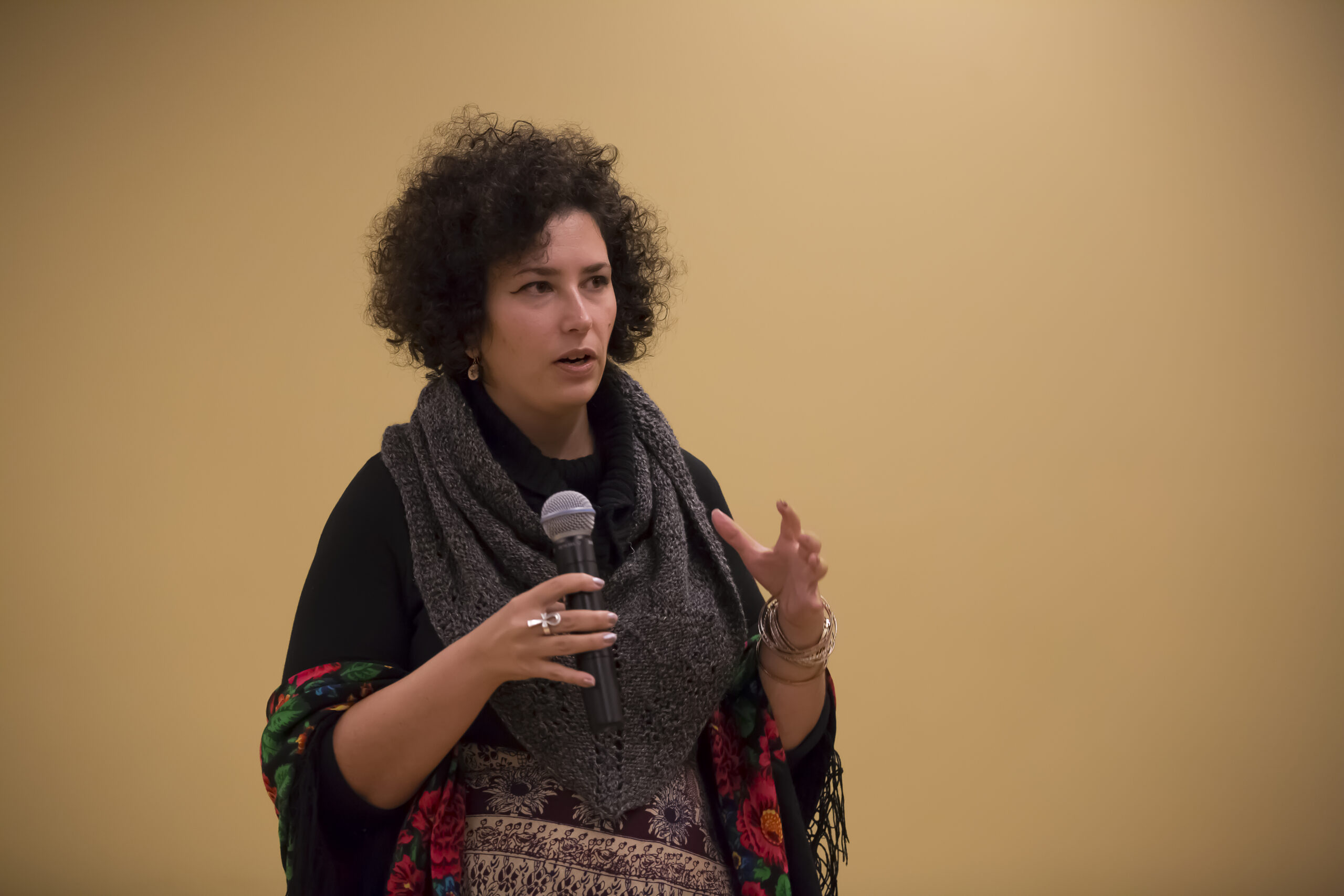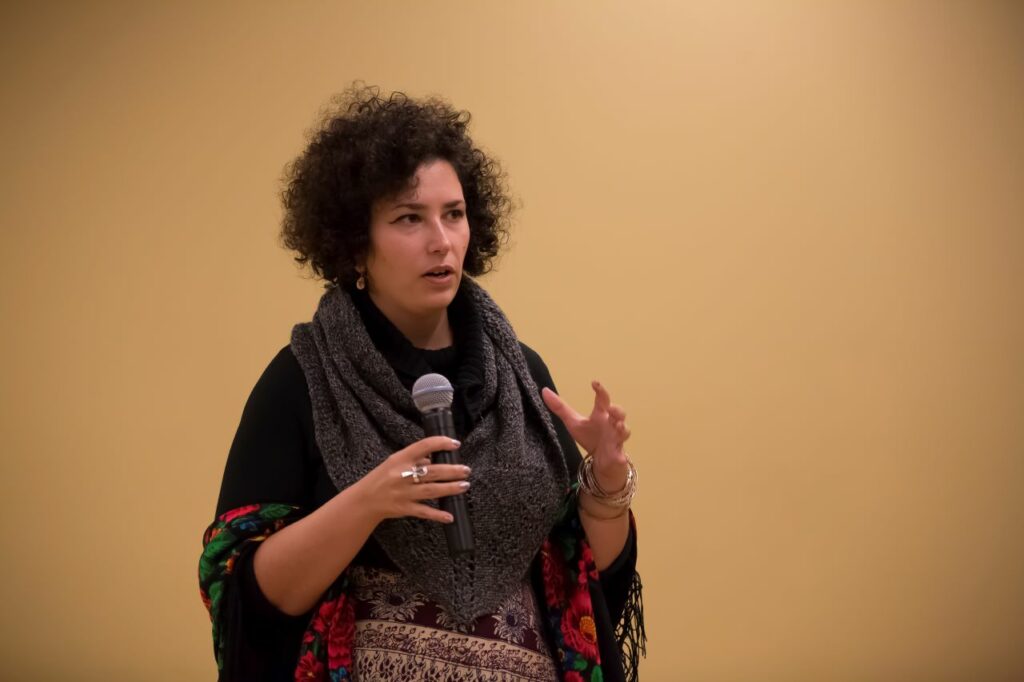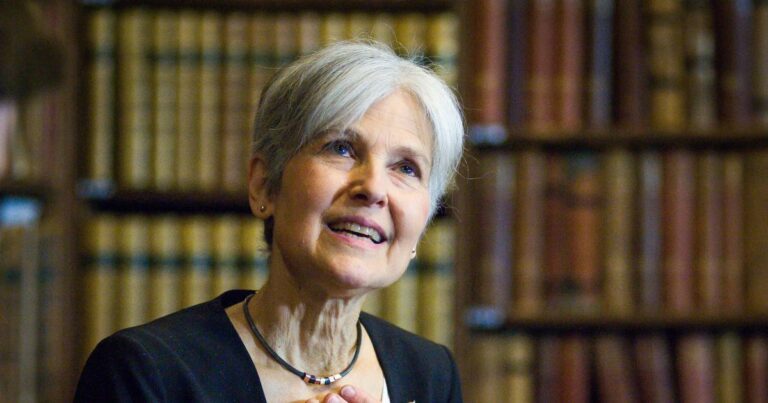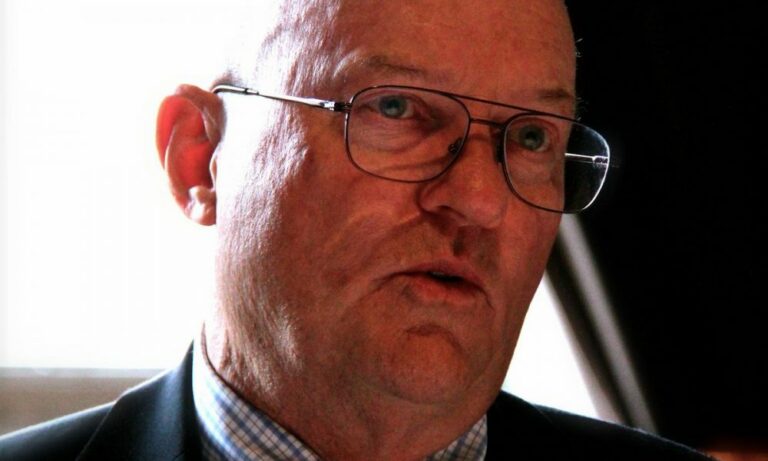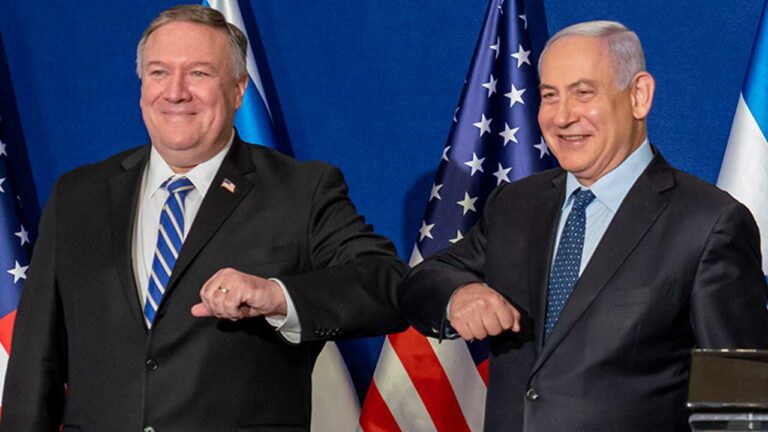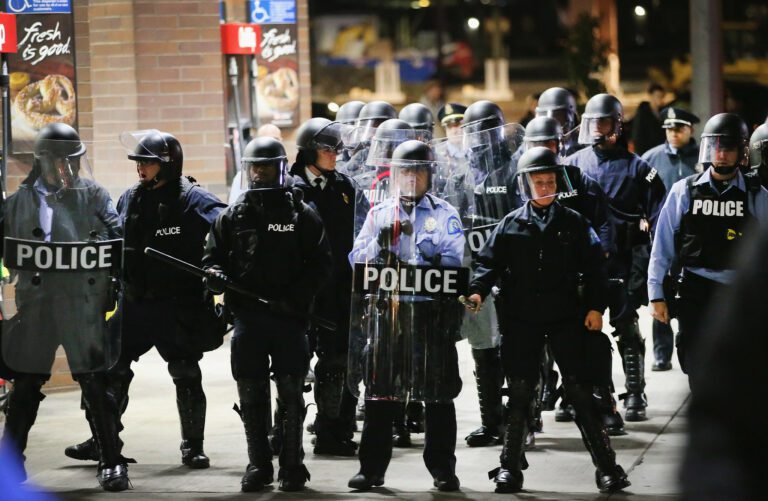This interview was originally published on December 17, 2014. Ms. Tarachansky, TRNN Israel – Palestine correspondent and former Israeli settler, tells Paul Jay about her new documentary film, On the Side of the Road.
PAUL JAY, SENIOR EDITOR, TRNN: Welcome to The Real News Network. I’m Paul Jay. And welcome to Reality Asserts Itself. This show is about identity, who we think we are, and who we really are.
Now joining us to talk about all of this and how this applies to Israel and Palestine is our Israel-Palestine correspondent Lia Tarachansky. As I said, she’s the Palestine-Israel correspondent with The Real News Network. She’s the director of the new documentary film On the Side of the Road, a documentary about Israel’s biggest taboo and its narrative about the events of 1948, when the state was created. Lia previously worked as a newsroom producer at The Real News’ Washington, D.C., bureau and at its Toronto headquarters. And her work has appeared on BBC, Al Jazeera, USA Today, and many more.
Thanks for joining us.
LIA TARACHANSKY, ISRAEL-PALESTINE CORRESPONDENT, TRNN: Thanks for having me, Paul.
JAY: So, as everybody knows that watches Reality Asserts Itself, we start this with a back story, the personal back story. But in this situation it’s actually even more germane, because in talking about Lia’s identity, we’re going to move on to Palestinian identity, Israeli identity, and Jewish North American identity.
So thank you.
So I don’t know how many people know your story. I mean, people watch The Real News maybe do. But give us just a brief history what brought you to Israel and how you started to become Israeli.
TARACHANSKY: I was born in the Soviet Union, in the former Soviet Union, in Kiev. And then, when I was six, we moved to Israel. We moved to the heart of the West Bank, into a settlement called Ariel, the same year that the Oslo Accords were signed. So, while the global community was getting involved in our conflict and trying to divide the two halves of the land into two states, we moved into the middle of what would become the Palestinian state, into a settlement that used the guise of all of these negotiations to double the numbers and then triple the numbers.
And that’s really the story of the failed peace process. While America was busy shuffling envoys back and forth between Ramallah, Jerusalem, and Tel Aviv, we were growing as a settlement movement, getting more and more empowered by the total impunity.
JAY: How much memory do you have of when you first arrived?
TARACHANSKY: How much memory? I mean–.
JAY: You’re six years old.
TARACHANSKY: Six years old? Yeah. I mean, I remember living in the Soviet Union. I was raised as a Russian in Israel, so my Russian identity is very strong. And I was raised in a settlement. So the settlement I grew up in is very–it’s kind of like an island, you know, kind of suspended from the sky, because from the outside it looks like a Swiss village, ’cause it’s got these little white houses, red roofs. And on the inside, it’s First World, you know, it’s a First World suburban community.
JAY: And it’s sort of like the Truman Show bubble in–.
TARACHANSKY: Totally.
JAY: I mean, I’ve been there. I was at Lia’s former home with her. What is it? About four years ago now?
TARACHANSKY: Yeah.
JAY: And we filmed there. And it is.
TARACHANSKY: I actually use that scene in my film.
JAY: I know. And it is. You look at it, and it’s these beautiful red rooves, and it looks like this idyllic little town,–
TARACHANSKY: Yeah. Pools.
JAY: –surrounded by hills and Palestinian villages.
TARACHANSKY: Yeah. And it’s amazing, because when you’re there, you have this feeling like you’re on the frontier of something really dangerous.
And the reason why we moved there is because my mother wanted to contribute back to Zionism, because my family is from the Soviet Union. As Jews, we’ve encountered a lot of anti-Semitism. Also, members of our family died in gulags. Most of the family was killed in the Holocaust in World War II fighting the Nazis. So all of this history is very prominent in our identity. And so we moved to Israel. And after 31 years of Soviet anti-Semitism, my mother is basically being told, it’s your turn to serve Zionism, to serve the Jewish national homeland. And so she says, what can I do? The settlements? Let’s do it. So we move to the settlements. And that’s where I grew up, completely–.
JAY: And how much of you at this time is your Jewish identity? And then what does that mean? Unpack that. What does that mean, Jewish identity?
TARACHANSKY: I don’t know Jewish–I mean, I don’t know what it means. I can tell you what it meant. I was the only Jew in my kindergarten in the Soviet Union. That’s what to me is a Jew is my kindergarten teacher hated Jews. She made sure everybody knew that I was the Jew. And as the only Jew–and in Russia, it’s a visible minority. So, visibly, looking at me, they would know I’m not a Russian, I’m a Jew. So it’s always in the anti-, right? And in Israel-Palestine, it’s in the–yes, we are the powerful, but we identify ourselves as the not that, not the local.
And that’s particularly poignant when you look at the majority of Israelis, who are Mizrahi Jews, Mizrahi meaning Orientals. But Mizrahi Jews are basically Jews that came from Spain in 1492 and settled in North Africa, as well as Jews that have been living in the Middle East and in Yemen and in the Saudi Arabian Peninsula. And so, for them, they moved to Israel in the first years of the state. They come from the Arab world. They speak Arabic. A lot of their traditions are inspired by Arabic culture. And within a few years, they’re Ashkenized, they’re Europeanized. And their kids don’t speak Arabic, their grandkids don’t speak Arabic, they don’t identify as Arabs, and they identify very strongly with Israel. All of a sudden, the falafel becomes the Israeli food, you know, hummus becomes houmous.
JAY: Okay. Well, I want to get back to you.
TARACHANSKY: Yeah.
JAY: So, in your early years, you are aware you’re on the margins. You are the one Jew. You’re aware of anti-Semitism. So when you move to Israel, is what becomes part of your identity some sense of relief that I’m no longer the persecuted one, I’m no longer the minority?
TARACHANSKY: Well, I think as a child you’re not very aware of it. I mean,–.
JAY: When you go to school, you’re not the only Jew anymore.
TARACHANSKY: Yeah. That was amazing. But, I mean, I moved to Israel when I was six. I was more preoccupied with the fact that three months after we moved there, the first Gulf War started, and we spent the first months–my first memories of Israel are sitting under sirens in a gas mask waiting for Saddam to bomb us with gas. You know. Like, these are the things I remember. I remember being–because in Israel, yes, I was now a Jew amongst Jews, but Israel is a very racist society. So, from being the stinking Jew in the Soviet Union, I became the stinking Russian in a Jewish state. And so–.
JAY: But in Europe, where you lived was all Russian.
TARACHANSKY: Ariel is Russian, but the first places we moved to were Haifa in the north, which is why we were bombed by Katyushas from Lebanon.
So these are my memories. I mean, as a child, you don’t have an analysis of your identity or of politics. So, for me, what I cared about is my relationship with people my age. And in Ariel, everybody was a Russian, or a lot of the people who lived there were Russians, so you immediately felt like you were part of something. Plus, being part of a closed, gated community in the middle of the Palestinian West Bank, it’s another layer of segregation and insularism. And being in a country that is a Jewish Europe style country in the middle of the Middle East, in the middle of Arab countries, is another layer of that. And so Israel is a bubble inside a bubble inside a bubble inside a bubble, and inside of all of that is the settlement right-wing movement.
And so those years in the settlements were the happiest years of my life, because I finally felt like I belonged to something, I was a part of something. And I never thought in bigger terms.
And, in fact, the first time I was ever called a settler, I was in my 20s. I was studying in university in Canada, and a Middle East correspondent called Jon Elmer came to speak on my campus, and I thought that he was very biased, and I was going to teach him what it’s all about, and asked him some kind of really ignorant question, and he just said, I’m so sick of you settlers coming to my talks and telling me I’m wrong. You go to Gaza. And I said to myself, what do you mean I’m a settler? I’m not a settler. And that’s when I started digging what does the settler mean.
JAY: Well, we’ll get to that.
As you grow up in the Soviet Union, this sense of they hate Jews, I’m one of them, people are out to get us, me, that’s kind of a core theme in Israel. And it’s not based on nothing. You know, there’s, what, a couple of thousand years of people hating Jews and trying to get them in one form or another.
TARACHANSKY: In Europe.
JAY: In Europe.
TARACHANSKY: Not in the Middle East.
JAY: In Europe. And the culture of this comes from Russia and Europe, yes.
TARACHANSKY: Yeah.
JAY: But does this become part of your identity as you grow up? Is this part of you? They’re out to get us, we have to defend ourselves?
TARACHANSKY: Yeah. I’ll tell you, one thing that is characteristic of ethnocracies, and particularly colonial ethnocracies that we see a lot in Israel, is a number of very strong contradictions. So Israeli identity is a mixture of the strong, the invincible, the strongest among the nations, we are the strongest army in the region and one of the strongest armies in the world, coupled with we are persecuted, we are hated, we are victims. Now, both of those things are true, and both of them work off of each other, and both of them are absolutely necessary for the ethnocratic project.
And what’s more important to me is not the colonialism that Israel perpetrates in the West Bank and in Gaza; what’s more important to me is the ethnocratic regime inside of Israel, because ethnocracies such as Israel, such as the former Balkan states, such as Sri Lanka and Macedonia used to be and South Africa used to be, are–this is the frontier of the global laboratory of how to deal with globalization. And this is why there is a rise of fascistic and extreme-right movements in the United States and in Europe and a lot of these Western places where they want globalized capital without globalized migration. And Israel is a laboratory for a lot of that, as well as weapons, but also a lot of those ideas. And that’s what I stay up at night worrying about.
And for that identity, for that national identity, you need a number of things. You need the justification for endless war. That’s where the victim identity comes from. You also need to inspire people. You need a story of success, of heroism. And this has been the story of Israeli military conquests throughout the last 67 years, to the point where if you ask an Israeli which war did Israel lose, they would say none. Maybe ’73, but none. No, we always win wars.
That’s complete bullshit. We have lost most of our wars, definitely in the last 20 years. We lost Lebanon I, we definitely lost Lebanon II, we lost the intifadas and these perpetual conflicts. Even this last summer attack–I was covering it for you, and I was out there on the ground every day covering what was happening all around us–Hamas didn’t just shock the Israeli military establishment in its ingenuous ways of combating this giant military machine with the tunnels, with the sneaking in through the sea, with rockets, with smuggling weapons from Libya after the 2011 civil war, and so on, and the number of things that they did that they pulled out of their hat of tricks that surprise us, but they forced us–and this nobody–nobody could have predicted this–they forced mighty Israeli into a negotiation with Hamas, a terrorist nothing group that was on its knees before the war started, was falling apart before the war started. And today, while everyone on the street was against Hamas before the war started, you won’t find a single person critical of Hamas [crosstalk]
JAY: Well, same thing happened last time.
TARACHANSKY: Same thing happened last time. And there’s a lot of geopolitics behind it.
But my point is we are perpetual war losers, and yet we have to perpetuate this identity that we are invincible.
JAY: Well, wait a sec, wait a sec. It may be that–I mean, it depends what you consider winning, because it wasn’t clear the objective was to get rid of Hamas, ’cause I think Israel feared what the alternative would be. But in terms of the relationship of Israel and the Israeli state to the Palestinians, right now they’re winners. I mean, the occupation looks like it’s endless.
TARACHANSKY: It’s true. Let me explain what I mean by win and lose. As I’m sure you know, since World War II, we haven’t had many wars where you have a clear winner and a clear loser. And Israel is not fighting an army. And so there isn’t never going to be a checkmark–you won and you lost. We’re fighting a civilian, largely civilian population.
I’m talking about Israeli public identity, this point at which you can get to the Israeli public, average Israeli thinks, we won that war. And the average Israeli today thinks, we’ve lost the last 12 years of war. And that’s incredibly important, because, yes, on the ground we have the West Bank, we can bomb Syria if we want to, we can bomb Lebanon if we want to, we can do anything we want.
JAY: Okay. I’m trying to get you to talk about your identity,–
TARACHANSKY: Yeah.
JAY: –and you’d want to talk politics.
TARACHANSKY: But my identity is a direct product of this contradiction.
JAY: Well, go back a bit. You grow up in Russia facing anti-Semitism. Your Jewish identity is–you know, this always happens. When people are oppressed for something, it actually increases that sense of identity. It doesn’t weaken it.
You come to Israel. You feel at home in the–when you get to the settler village or town. You’ve said it’s some of the happiest years of your life.
When we went with you and you looked out, you know, you went–I think you hadn’t really been there for any length of time before we went with you. I think maybe–.
TARACHANSKY: I went to visit a bunch, but I didn’t move back or anything.
JAY: And we also didn’t look around, really.
TARACHANSKY: And I didn’t like being there.
JAY: But there’s a moment, and it’s that we worked together on, and it’s in your film. And I’ll play it now.
…
JAY: Alright. So tell us, first of all, what happened. Why are you crying in the car?
TARACHANSKY: I hate this question. I don’t know why I’m crying.
I had a–I will tell you what happened just before you pressed record in that scene. You gave me the microphone. You probably don’t remember this. And you said, just do a quick throw, Lia. You know, just say, I’m Lia Tarachansky with The Real News. This is the place where I grew up, and this is what a settlement is. And you probably don’t remember this, but when you gave me the microphone and I was freaking out in my head ’cause I hate being on camera, the call to prayer started next door, and the place where we were standing, it was just the edge of the hill, and then you have a number of fences going down. And then you have a Palestinian village. But you would never see it, because it’s just on the bottom of the hill [incompr.] this architectural identity are always on top of the hill. So I never knew that they were there. And the call to prayer starts, and I realized in that moment that I was standing there–.
JAY: When you say “they were there”, you mean the Palestinian village.
TARACHANSKY: The Palestinian–I mean, at this point, my intellectual identity was already very much questioning of the Zionist project. But to physically be there surrounded by these Palestinian villages is completely different than to understand something from watching the news and so on and so forth. And to physically be in that space and to realize that I had grown up here, I’d spent my happiest years here, and here comes “Allāhu Akbar”, and it’s the first time in my life that I’m hearing the sound that I had somehow–and the call to prayer happens five times a day. Israel is surrounded by villages whose names I didn’t even know, all around, each village, five times a day, the call to prayer, and I somehow didn’t even register hearing the sound. And when I turned around to point out to you what is a settlement and what’s a Palestinian village and what’s a settlement, what’s a Palestinian village, I was naming them to you, but in my mind I was thinking, I don’t even remember them being there.
JAY: It’s the power of these created identities that you can’t even see and hear.
TARACHANSKY: Well, you’re so busy constructing your identity, you’re not even paying attention to what’s right in front of you. And that is in essence the representation of collective denial. That is what Stanley Cohen, on whose work I did my documentary, exactly what he describes. What do two people looking at the same object, how can it be that they see two different things? And what do they do to that knowledge? And what does that knowledge do to them? For me, that changed my life, and I know that for the rest of my life I’m going to have to fight not just the Zionistic idea of Jewish exclusivity to the land, but I’m going to have to stand up against what’s going on in Israel-Palestine until there is justice for the rest of my life. And it doesn’t matter what I want to do with my life; it doesn’t matter what I want to do with my free time. This is my responsibility, just like it is the responsibility of every person in America to stop police brutality against the largely people of color minority. It is your responsibility. It’s not about right and wrong. You have to do this. You don’t have a choice.
And that’s what I realized in that moment is that implicated in my own guilt for having enjoyed colonialism on this land, this land that does not belong to just one group, it is now my responsibility to fight it forever. And this is the effect that this seeing and hearing for the first time had on me.
And I have to tell you the truth. Since have been the best years of my adult life, understanding that, having the clarity of thought to finally lay out not just the historical narrative, but also understand so many things that I was afraid to ask questions about, to finally look beyond my fear and go to the West Bank and have friends in Gaza and sit on the phone with them as they were being bombed by, supposedly, my army, and hear each other’s humanity, and have them tell me, Lia, I know this is not you, I know you’re in solidarity; I’m here with you, I’m sorry that there’s people sending rockets at you, it’s not my intention. My privilege to be able to see across these walls, it was a direct result of being able to have that moment.
And I wish for everyone in my country, I wish for all my people to have that moment, because it’s only once we look past these walls that we can see the humanity of the other and we can move out of this collective trauma.
JAY: Okay. In the next segment of our interview, we’re going to talk about the arc of you, ’cause I know you and I know when you grew up you were a believer in the identity and the official narrative. And clearly know you ain’t. So how do you get from there to here?
So please join us on Reality Asserts Itself for the continuation of our series of interviews with Lia Tarachansky.
Never miss another story
Subscribe to theAnalysis.news – Newsletter
“Lia Tarachansky is an Israeli-Canadian journalist and filmmaker born in the Soviet Union. Her video journalism covered American politics, the Middle East, and Canadian-indigenous relations.”
